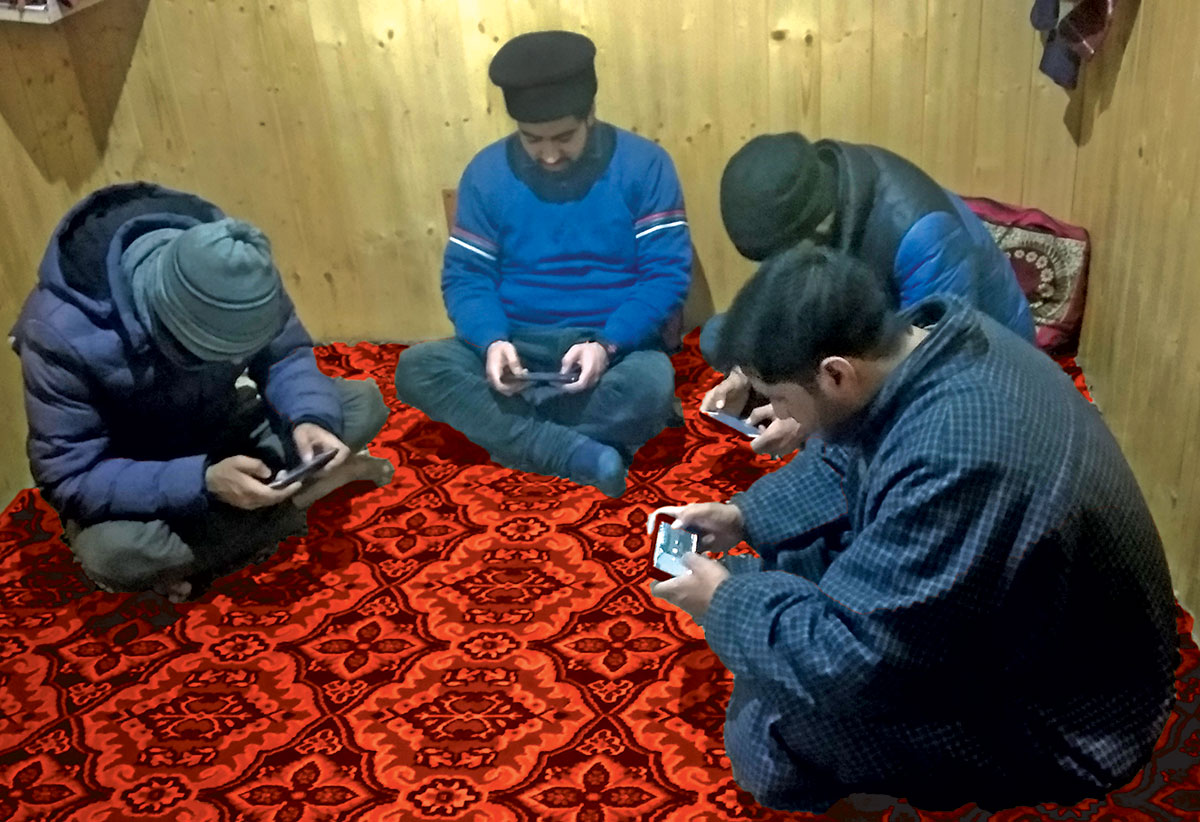Frequent broadband outages are pushing people to the wrong side of the digital divide, reports Umar Mukhtar

On April 16, 2017, Rouf Ahmed, a Commerce graduate, received a message from a Dubai company that he has been shortlisted for the job he had applied for.
He was told to keep all his documents ready and mail them quickly. For rest of the day, Rouf compiled all the documents.
Next morning, Rouf got up and checked his phone. Its internet was down.
He rushed out to a nearby internet Cafe. To his surprise, he was told that the internet was blocked by the government once again.
Reason: an army truck has entered a college in Pulwama, which angered students, trigging clashes. In order to control the spiralling protests, which by then had reached other parts of Kashmir, the government ordered the suspension of internet services by blocking access to 22 websites and applications including WhatsApp, Facebook and Twitter.
Interestingly the list includes websites like QQ, Baidu, Qzone, which are not used outside of mainland China.
With situation tense on streets and internet shut, Rouf saw his Dubai dream fading away. “I had a very short deadline to send those documents,” recalls Rouf sadly, who had celebrated the earlier call of appointment with his family
As campus unrest protracted, Rouf not only missed the April 19, deadline, but also his job in Dubai.
A day later, United Nations repertoire on free speech David Kaye and Robert Forst termed the ban on internet and social media sites as the collective ‘punishment.’
“India must immediately end its ban on social media networks and on mobile internet services in Jammu and Kashmir and guarantee freedom of expression for citizens,” Forest said. “The scope of these restrictions has a significantly disproportionate impact on the fundamental rights of everyone in Kashmir, undermining the government’s stated aim of preventing dissemination of information that could lead to violence.”
But for Rouf even UN intervention couldn’t save him from losing an opportunity.
According to an international watchdog ‘internet shutdowns.in’ there have been 57 internet gags in Kashmir since 2012. In 2017 alone, the internet was gagged 29 times, the highest in the recent years. The actual outages would be more.
The government even attempted banning virtual private networks (VPN) to prevent people accessing the social networking websites In the aftermath of Burhan Wani’s killing on July 8, 2016, the government banned internet services to the extent that even media had to launch a series of protests and get the access to the net.
In a conference by ‘Media Nama’ at Delhi, on internet shutdowns in Kashmir, a speaker said that by shutting the internet spread of rumours cannot be stopped rather it actually adds more to that. That was exactly what government understood when the Amarnath pilgrims were attacked and killed in Bejbehara outskirts.
“When the police blocked internet, the rumours started spreading, police had actually stopped even media to reach Khanabal and TV, in absence of any detail was running the story it had,” one key player in the crisis management said. “The first thing we did was to unblock the internet, second we gave the entire story, going against the police decision, then we permitted media and finally we clicked videos of the victim families and fed it to TV newsrooms directly.” The political being said that this helped manage the crisis and prevent a serious backlash.
The frequent gagging of the internet has frustrated students and business fraternity. “For a student who is having exams has to make sure that he has all the hard material available,” Mohammad Irfan, a scholar at the University of Kashmir, said.
Irfan said their counterparts outside Kashmir watch lectures on YouTube, interact with students. Here, he said, they are unable to even access their syllabus and date sheet. Sameer Wani, a courier boy said that in peripheries of Kashmir mainly in south Kashmir many units were closed because of the internet gags. “Most of the courier boys had no order to deliver for most of the time as people could not place an order because of no internet,” said Wani.
In 2007, Umar Javid, a budding entrepreneur, established a pharmaceutical business in Srinagar, hoping he will be expanding once it kicks off. But, after continuous gags on internet services in 2016, Javid decided to move his base to Jammu, where connectivity was not an issue.
How can we even think of going digital when there is no internet available,” feels Javid. “Without the internet, it is like living in dark ages.”















